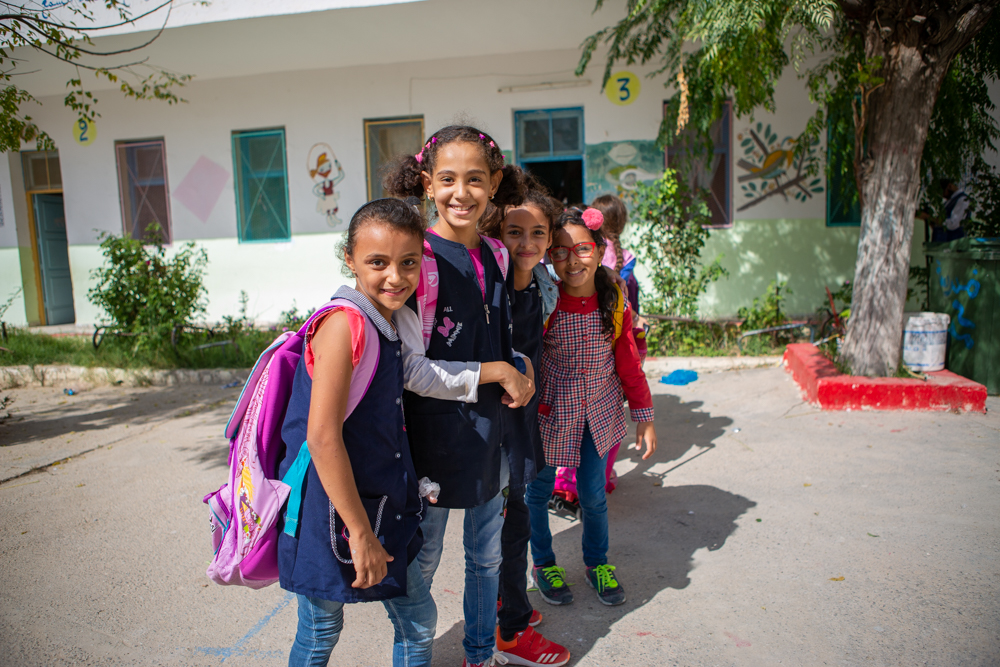The HIAS I know
IRUSA’s Christina Tobias-Nahi recently returned from a trip to Lesvos, Greece. She reflected with ReliefLab on her experience partnering with HIAS.
This October, I had the pleasure of spending a week traveling with some of the amazing HIAS staff and a board member to visit a partnership project we are working on in Lesvos, Greece. Shortly after I returned from this wonderful experience, HIAS became the target of hateful social media rants from the shooter responsible for the Pittsburg synagogue tragedy. It was clear to me that he did not—could not—know the true HIAS that I spent days alongside serving vulnerable refugees. In light of all of this, I would like to tell the story of the HIAS I know.
It’s a story about shared laughs when we got a flat tire on a rural, windy, mountainous road after visiting the somber site known as the lifevest graveyard with discarded (and often fake) flotation devices hanging off barbed wire or dumped in heaps, meters high. Some of the floatation devices got people across the sea alive; some did not.
On a more lighthearted note, I spent part of my trip directing traffic to keep the HIAS van from being struck from behind as the fearless Greek country director (a lawyer and probably never expecting this to be in his job description) flagged down a car to go look for a spare. I was awed (not attacked as I first thought!) by tiny little night bats as the sun was setting on our little group. On the last day, we had a group lunch where the Greek national staff in their hospitable Mediterranean way (and several being Christian orthodox) brought ham pizzas that neither the Jewish visiting staff nor board member, nor myself the Muslim visitor, could eat. We had a good chuckle and the cheese pizzas were devoured with gusto!
More importantly, bringing hope to the refugees and asylum seekers we met inside and outside the Moria camp, and now the overflow Olive Grove encampment, is the part of this story that moved me. Camps meant to be transitory in nature where some have languished one or two years with their kids out of formal schooling. Information sessions were conducted in many languages (French the day I was there) to instruct new migrants arriving about their rights. As Mark Hetfield, HIAS President and CEO, said at an event we had together in the Nation’s Capitol over a year ago and where we awarded HIAS a courage prize, “We do the work we do not because they are Jewish, but because we are, and our faith calls us to welcome the stranger.”
They not only welcome refugees, they protect them—both overseas and in the US. Yet, that was seen as a threat by the one who committed this most recent vile act in the Pittsburgh synagogue where 11 innocent people lost their lives. He could not have comprehended the beautiful embodiment of HIAS’ mission. I am grateful to have come to know them and the incredibly dedicated local staff they employ. Working in difficult circumstances, in the most challenging of environments, long hours away from their families, with a passion, not giving up. And still finding humor when things don’t go quite right because, in the end, that is our shared humanity.






